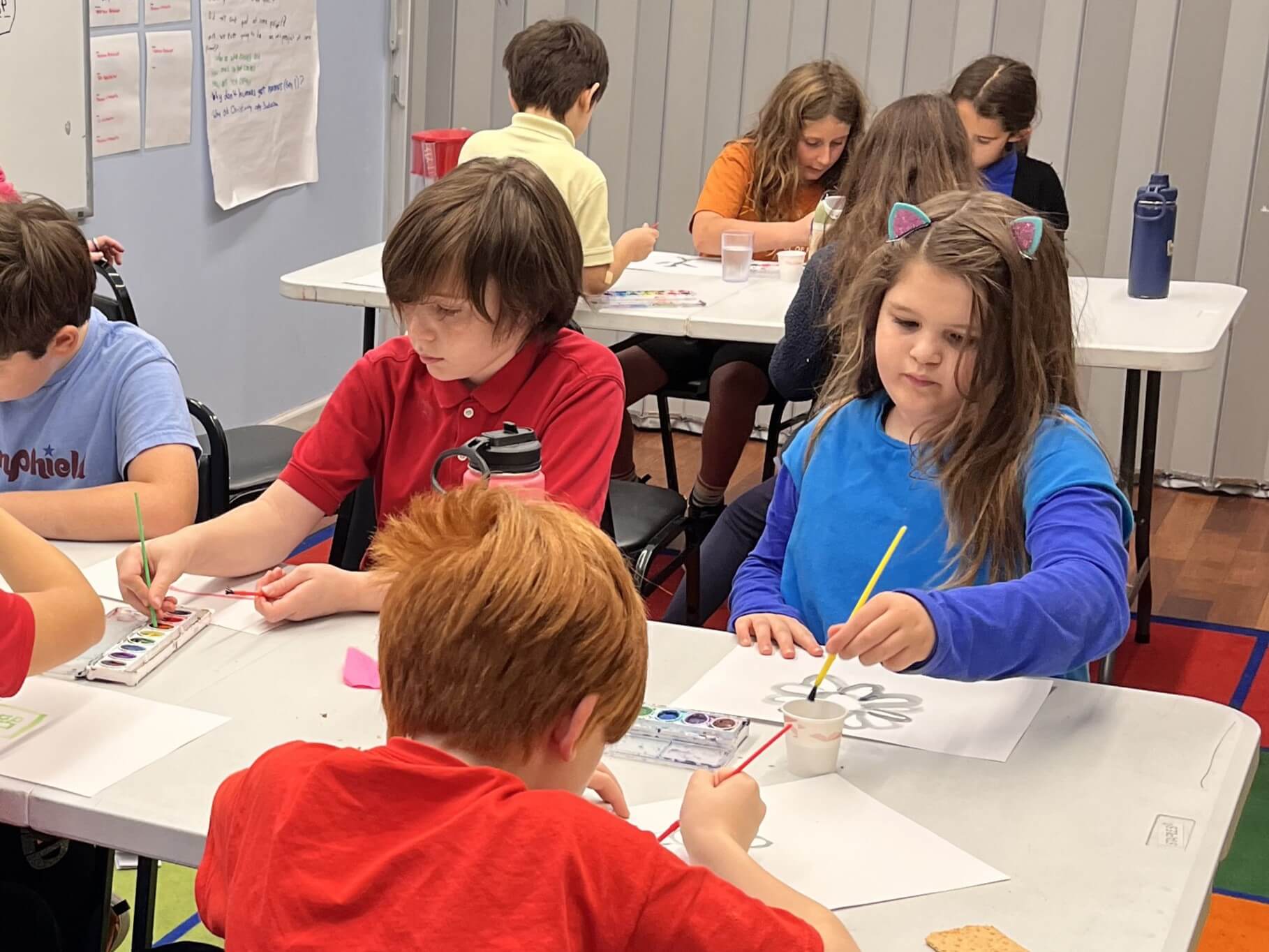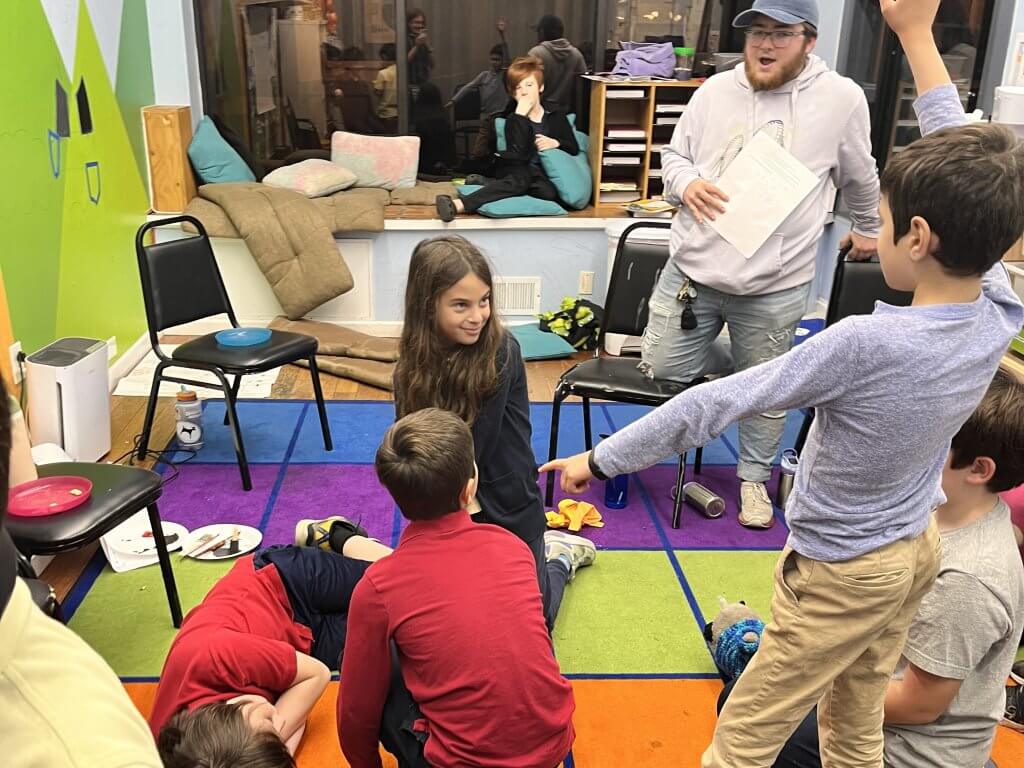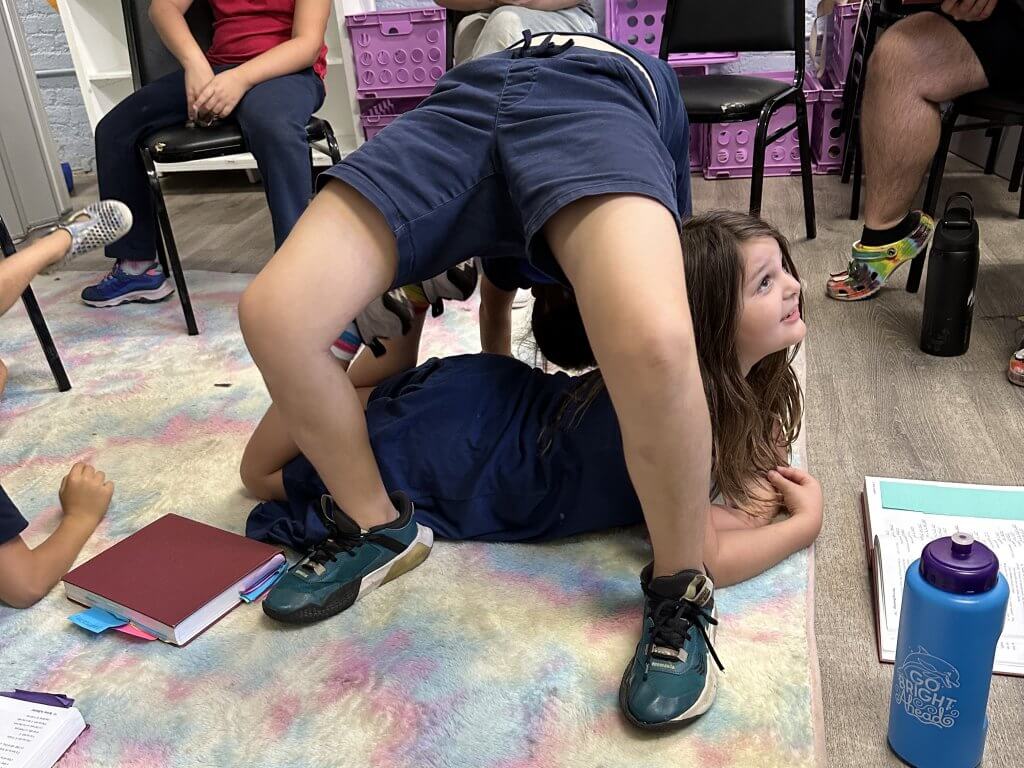
A few weeks ago, we delved into an excitingly familiar text for the Nitzanim (3rd-4th graders): the creation of Shabbat (Genesis 2:1-3). This is the same text we sing at the beginning of Friday night kiddush (blessing over wine/grape juice), which many Nitzanim kiddos are working on in Tefilah mastery. At this moment in the text, God stops creating the world, lets everything be just as it is, and rests.
We invited the Nitzanim to create – to paint – only for a set amount of time. Then we asked them to take a break, during which we had them consider: how did it feel to rest in the middle of painting?
- It’s hard to stop because we’re working.
- It was really annoying! I wasn’t done so I wanted to keep working SO much.
- We can follow the Constitution. We can do what we want! We’re free citizens!
- It felt sad because we couldn’t keep on going.
After stopping and resting for a minute, the kiddos got back to their paintings. How did it feel to go back to painting after resting?
- It’s kind of like a fresh start! It’s exciting. You get to GO!
- It actually felt kinda good that we got to keep doing it.
Using our own experience of resting in the middle of working on a project, we reflected on why God might have rested at this point in the act of creation:
- Earth is a good thing and you can have too much of a good thing.
- It would be too crowded if God kept creating!
- If you draw a black background and then you want to add something with a color you can’t because you’ve already drawn too much!
Something about the act of stopping and resting was particularly special for God. Resting gave God the space to “bless the seventh day and declare it holy” (Genesis 2:3). What does that mean? Why does God do that for this 7th day when God didn’t do it for the other six days of creation?

We weren’t the only people to have this question. Several rabbis asked this same question and created the following commentary as an answer. One of them suggested that God did this because all the other days of the week had a partner except for Shabbat, and blessing Shabbat made Shabbat the Jewish people’s partner (Bereishit Rabbah 11:8).
One Nitzanim kid had a lot of thoughts and questions about this: “Why can’t God just be Shabbat’s partner? What happens to Shabbat if the whole world gets destroyed? Or if people stop existing? Animals weren’t given Shabbat mitzvot (rules), and they can’t understand God as well as humans. They don’t come to places like synagogue and Makom, so then what would happen to Shabbat?”

The Nitzanim kids have had a lot of good questions and observations during Tefilah (prayer) about the liturgy in their siddur (prayerbook) and the format of the siddur itself.
- If God can control disasters like God did in the leaving Egypt story, then can God control what’s happening now in the world? Does God really want us to have Shabbat?
- I notice that there are the same words in this brachah (blessing) as the second paragraph of the Amidah (standing prayer), but they’re translated in two different ways.
- Why is the rightmost section of comments divided up with these different headings and sections?
- What’s a minyan (quorum of 10 Jewish adults)? Why are we only supposed to do this Tefilah with a minyan?
This exercise gave the kiddos the opportunity to practice resting from creation with intention, and, as a whole, their reflections surmise that- by resting, the act of creating or working becomes more meaningful. It’s safe to say that this is a reflection that has the potential to bring us all comfort when we find it difficult to take a step away from projects in times of transition.
